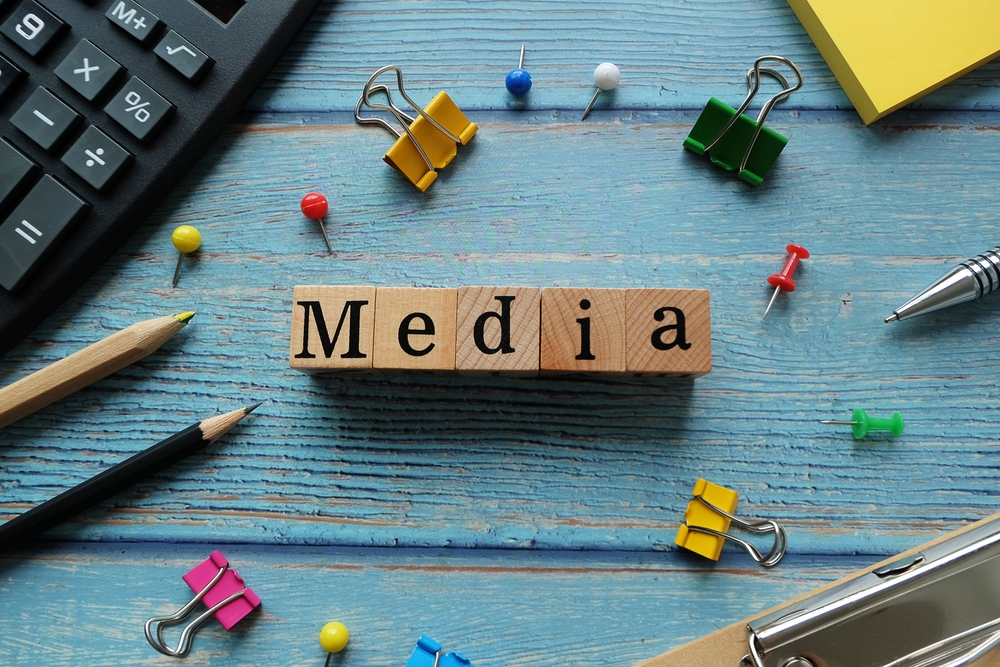Introduction
In today’s fast-evolving marketing landscape, the debate often centers around AI vs. traditional methods. However, treating them as mutually exclusive misses out on a wealth of opportunities. Rather than forcing an “either/or” decision, savvy marketers and businesses are finding success with a hybrid marketing strategy that combines the strengths of traditional marketing approaches with the agility and scalability of AI. According to a 2023 Deloitte report on global marketing trends, organizations that blend AI with established methods see up to a 25% increase in campaign ROI.
In this comprehensive guide, we’ll explore why a hybrid approach makes sense, identify which marketing functions benefit most from AI, and share practical tips on seamlessly blending AI marketing integration with well-established strategies. Whether you’re an entrepreneur working with a tight budget, an in-house marketing team aiming to boost ROI, an agency scaling for multiple clients, or a solo marketer looking to stand out, you’ll find actionable insights to elevate your efforts.
1. Why an Either/Or Approach to AI Is Misguided
Marketing has always required both creative insight and data-driven precision. Traditional tactics such as direct mail campaigns, trade show appearances, and print advertisements excel at building personal connections and reinforcing brand familiarity. On the other hand, AI-driven methods tap into big data for rapid insights and automation, enabling targeted personalization at scale.
Seeing AI and traditional marketing as opposing forces prevents you from maximizing their complementary strengths. For example, a print advertisement can be fine-tuned using AI-powered audience insights, ensuring that you target the right geographic markets with the most relevant messaging. When handled separately, these tactics might produce less-than-optimal results. When combined, they can amplify overall campaign effectiveness.
Core Audience Alignment:
- Entrepreneurs: Don’t have to choose between cost-effective old-school tactics and modern AI-powered personalization. A blended approach taps both.
- In-House Teams: Achieve stronger ROI by merging established brand assets (like offline brand collateral) with AI-driven campaign optimizations.
- Agencies: Different clients may require both new and traditional tactics. Hybrid marketing strategies make it easier to balance innovation with proven methods.
- Solo Marketers/Freelancers: Combining time-tested best practices with scalable AI solutions frees you to focus on high-value creative tasks.
2. Identifying Which Marketing Elements Benefit Most from AI
AI marketing integration can be a game-changer, but not all aspects of your strategy need it at first. The most immediate benefits often arise in areas where time and data complexity are significant barriers to efficiency.
2.1 Content Creation and Personalization
Tasks like writing email sequences, social posts, landing pages, and blog content can strain any marketer. AI helps to automate first drafts and tailor content to specific audience segments. This accelerates production and maintains brand consistency once you feed it your guidelines.
2.2 Audience Targeting and Segmentation
Traditional segmentation might rely on demographics alone. AI uses machine learning algorithms to spot emerging behavioral patterns, helpful for identifying which products resonate with which audience subsets. According to a study by eMarketer, organizations that personalize campaigns with AI-driven insights see up to a 20% improvement in conversion rates.
2.3 Performance Analytics and Forecasting
AI-powered analytics tools quickly interpret large data sets, such as your website traffic, CRM exports, and past campaign performance, yielding actionable insights in real time. Reliable forecasting can indicate which channels perform best for specific offers and predict how budget shifts might affect lead generation or conversions.
2.4 Automated Testing
Manual A/B testing can take weeks. AI-driven testing narrows it to days or even hours, continuously iterating subject lines, creative assets, or landing page layouts. This allows you to hone in on winning variations far more quickly.
Key Takeaway: Focus your AI adoption on high-value tasks that typically burn a lot of time and resources. Doing so amplifies your team’s effectiveness and leaves room for the human insight and creativity that no algorithm can replicate.
3. Creating Seamless Workflows Between AI and Human Creativity
Blending AI with traditional processes works best when workflows are clearly defined and when it’s clear that technology and human oversight are partners rather than competitors. Here’s how to establish a smooth hybrid system:
3.1 Start with Collaborative Ideation
In-house teams, agencies, and freelancers often brainstorm marketing campaigns by reviewing key brand messages, reviewing past successes, or mapping out buyer journeys. Introduce AI at the brainstorming stage to pull relevant themes from your data, but always sense-check these AI suggestions with human experience and brand instincts.
3.2 AI-Assisted Drafting, Human Refinement
Whether you’re writing an email sequence or assembling a new landing page, AI models can automate first drafts and outline potential copy structures. Marketers can then refine and perfect these drafts, ensuring the final output remains authentic and on-brand.
3.3 Institutionalize Approvals and Feedback Loops
With AI in the mix, approval processes should adapt. Decide which steps need human sign-off and which can be fully automated. Feedback loops help the AI learn your brand’s tone and style, improving content quality over time.
Practical Example: A marketing agency might have an AI tool pre-generate blog outlines for its clients, but a senior strategist reviews each outline to ensure alignment with brand guidelines before content creation begins.
4. Comparison Table: AI vs. Human-Led Approaches
The table below compares how AI-led approaches and human-led approaches tackle various marketing tasks, demonstrating the benefits and limitations of each. Keep in mind that the ideal scenario often involves a hybrid marketing strategy.
Marketing Task | AI-Led Approach | Human-Led Approach | Best Hybrid Method |
Content Generation | Rapid drafts, brand-aligned style if trained properly | Creative nuance, storytelling, brand insight | Use AI for the first draft. Human editors refine tone and storytelling. |
Audience Analysis | Data-driven segmentation, quick pattern recognition | Empathetic understanding, contextual knowledge | AI forms data segments. Marketers validate segments against real-world audience feedback. |
Campaign Optimization | Automated A/B testing, real-time performance analytics | Holistic problem-solving, brand stewardship | Leverage AI-driven test results, but keep final decisions aligned with brand strategy. |
Creative Design | Template-based graphics, automated formatting | Art direction, unique brand expression | Use AI to streamline routine tasks, keep a designer’s eye on brand look and feel. |
Blending the two approaches allows for both the efficiency of AI and the creative spark that comes only from human insights. This synergy is at the heart of effective hybrid marketing strategies.
5. Implementing a Hybrid Marketing Strategy: Practical Steps
To successfully integrate AI with traditional marketing methods, follow these implementation steps:
5.1 Audit Your Current Marketing Processes
Begin by identifying which aspects of your marketing workflow are most time-consuming or data-intensive. These areas typically benefit most from AI integration. Document your existing processes, noting pain points and bottlenecks where technology could provide relief.
5.2 Start Small and Scale Gradually
Rather than overhauling your entire marketing operation at once, select one or two areas for initial AI implementation. Content creation and data analysis often provide quick wins with minimal disruption. As your team grows comfortable with the hybrid approach, gradually expand AI’s role in your marketing ecosystem.
5.3 Train Your Team on Both Sides of the Equation
Ensure your marketing team understands both the capabilities and limitations of AI tools. Equally important is reinforcing the value of traditional marketing skills like strategic thinking, creative development, and brand stewardship. The goal is to create a team that can leverage both technological and traditional marketing expertise.
5.4 Establish Clear Guidelines for AI Usage
Develop protocols that specify when and how AI should be used in your marketing processes. These guidelines should include:
- Which tasks can be fully automated
- Which require human review before publication
- Brand voice parameters for AI-generated content
- Data sources that inform AI decision-making
5.5 Measure Results and Refine Your Approach
Track key performance indicators before and after implementing your hybrid strategy. Look for improvements in efficiency, consistency, and marketing outcomes. Use these insights to continuously refine your approach, adjusting the balance between AI and traditional methods as needed.
6. The Future of Hybrid Marketing: Trends to Watch
As AI technology continues to evolve, the relationship between traditional marketing and AI-powered approaches will grow increasingly sophisticated. Forward-thinking marketers should keep an eye on these emerging trends:
6.1 Predictive Customer Journey Mapping
AI is becoming increasingly adept at anticipating customer needs before they arise. By analyzing behavioral patterns across touchpoints, predictive AI can help marketers design more intuitive customer journeys that blend digital interactions with meaningful human connections at critical decision points.
6.2 Enhanced Personalization at Scale
The next frontier of personalization goes beyond simple demographic targeting to create truly individualized experiences. AI will enable marketers to deliver customized content, offers, and interactions while maintaining the authentic brand voice that traditional marketing emphasizes.
6.3 Augmented Creative Development
Rather than replacing creative professionals, AI tools are evolving to enhance human creativity. Expect to see more collaborative tools that suggest creative directions based on performance data while leaving room for human intuition and artistic judgment.
6.4 Ethical AI Marketing Practices
As AI becomes more prevalent in marketing, ethical considerations around data usage, transparency, and consumer privacy will take center stage. Brands that thoughtfully balance technological capabilities with ethical standards will build stronger consumer trust.
Conclusion: Your Next Steps Toward a Hybrid Approach
Successful marketing doesn’t have to mean choosing between technology and tradition. By taking a hybrid marketing strategy, integrating AI with traditional marketing methods, you gain efficiency, maintain authentic brand connections, and stay adaptable in a rapidly shifting landscape. The result is a powerful combination of real-time data intelligence and human creativity.
The organizations that will thrive in tomorrow’s marketing landscape aren’t those that abandon traditional methods for AI, nor those that resist technological change. Rather, success will come to those who thoughtfully blend both approaches, leveraging each for its unique strengths while mitigating its weaknesses.
As you consider your own marketing strategy, remember that the goal isn’t to use AI for its own sake, but to enhance your team’s capabilities, extend your reach, and deliver more meaningful experiences to your audience. By starting with clear objectives and implementing AI strategically alongside your proven traditional methods, you can create a marketing approach that’s greater than the sum of its parts.
Ready to see how all of this can work for your own brand? Explore how Ryv AI bridges AI and traditional marketing for your business and discover new ways to streamline your marketing while keeping the heart and soul that resonates with your audience.




